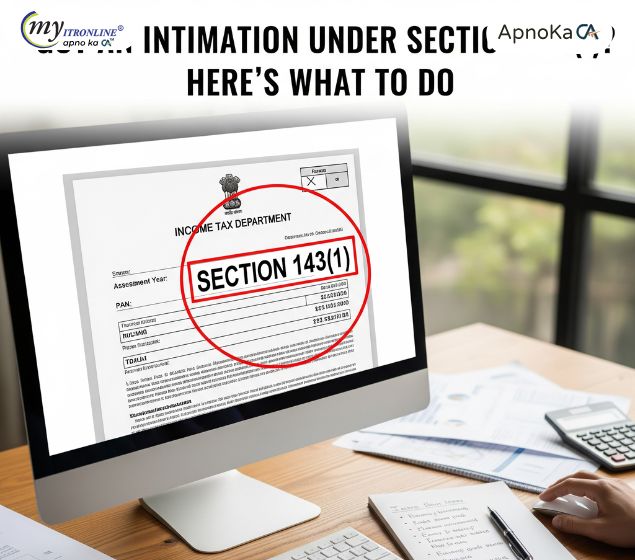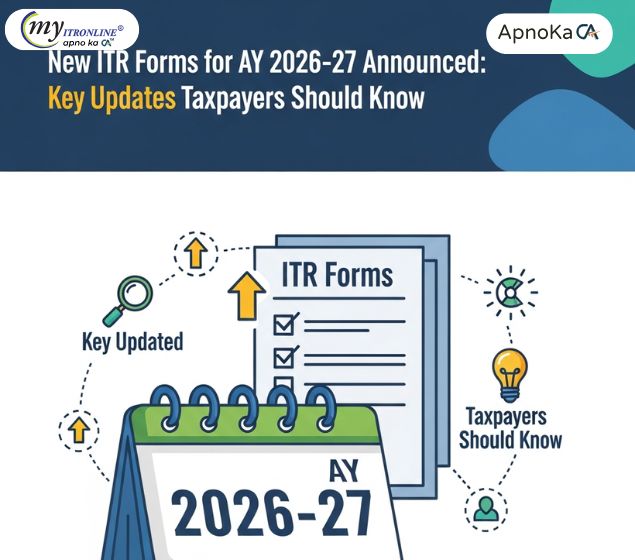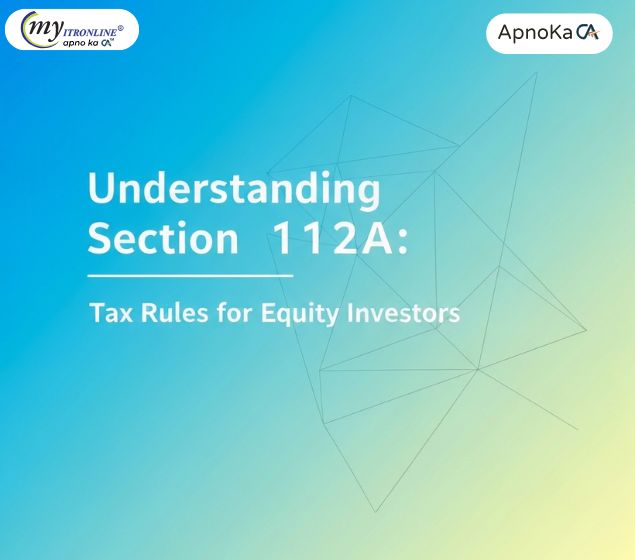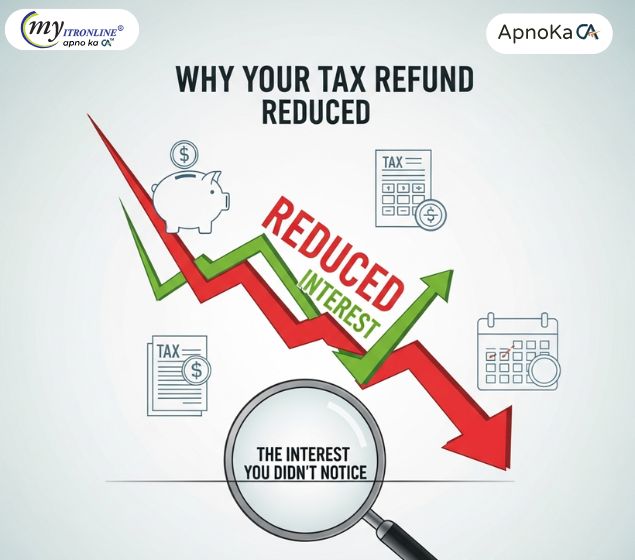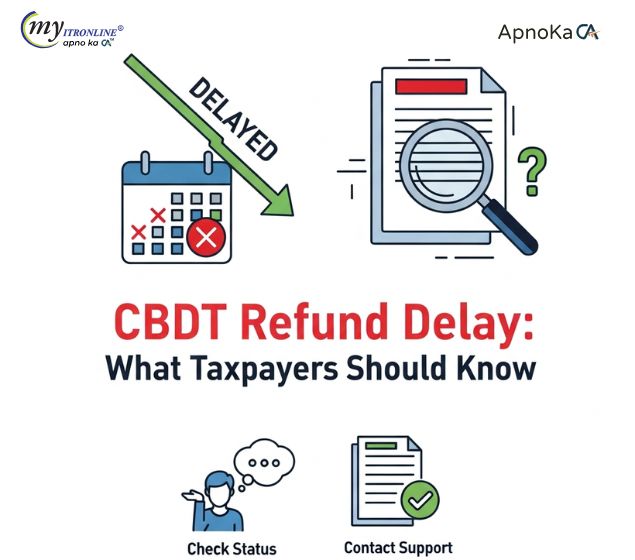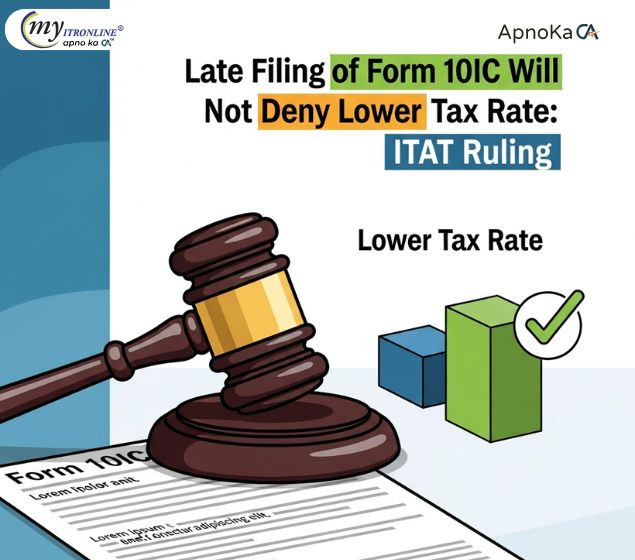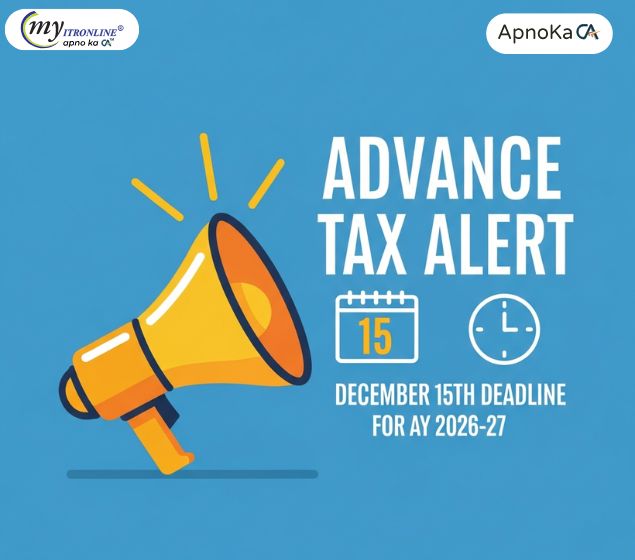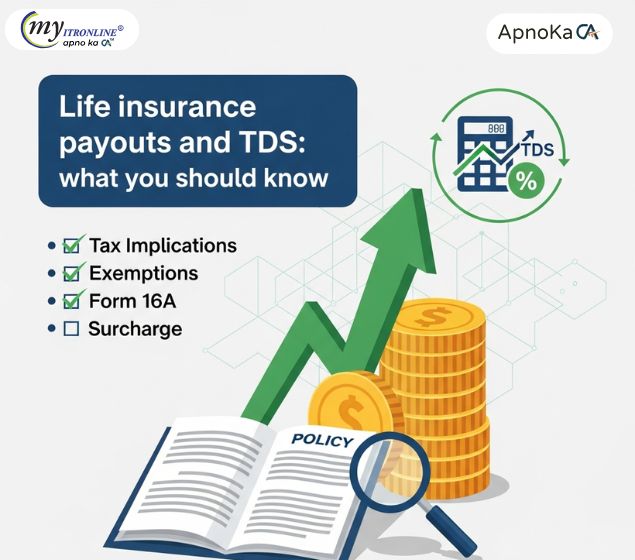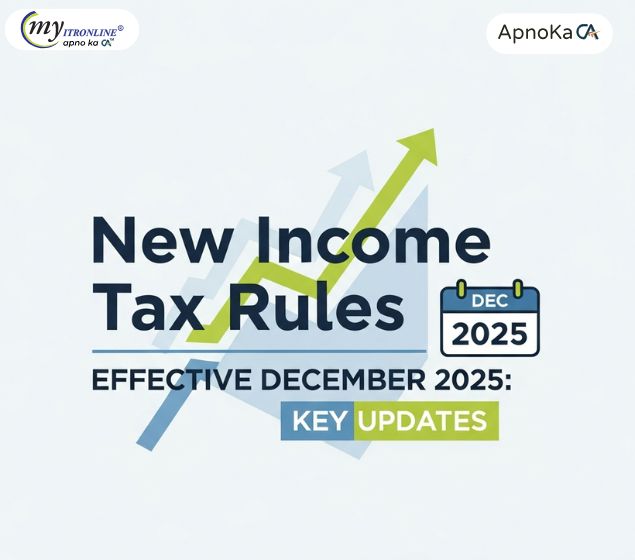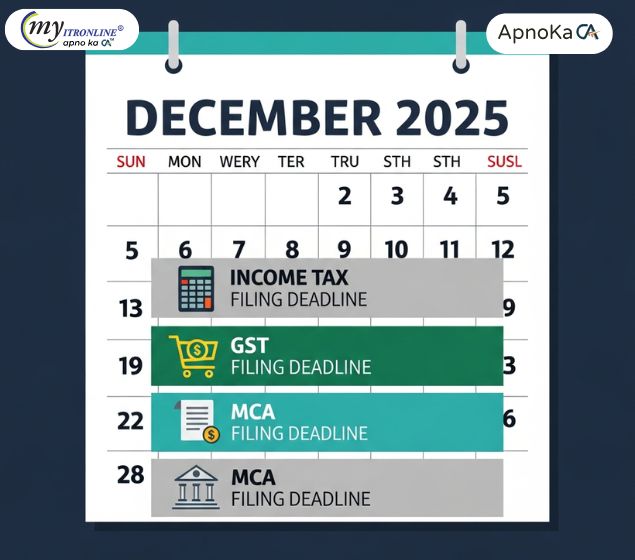Avoiding Penalties Under Section 271B: Why and When You Need an Income Tax Audit
This blog explains the mandatory income tax audit requirements under Section 44AB for Indian businesses and professionals, detailing the various turnover and gross receipt thresholds. It highlights the significant penalties imposed by Section 271B for non-compliance, alongside conditions where penalties can be avoided due to 'reasonable cause.' The post also emphasizes the broader benefits of an audit beyond just avoiding penalties, such as enhanced credibility and financial accuracy.
.jpg )
Avoiding Penalties Under Section 271B: Why and When You Need an Income Tax Audit
For entrepreneurs and professionals in India, it is crucial to comprehend the intricacies of income tax compliance. One significant aspect that often induces concern is the necessity of an income tax audit and the heavy penalties that may result from non-compliance. Section 271B of the Income Tax Act, 1961, addresses penalties related to the failure to conduct an audit of accounts. This blog post will explore why an income tax audit is essential, when it becomes mandatory, and how to steer clear of the harsh penalties tied to Section 271B.
What is an Income Tax Audit?
An income tax audit refers to an objective assessment of a business or professional's accounting records to confirm that they accurately reflect the financial status and that the taxpayer has adhered to the stipulations of the Income Tax Act. A qualified Chartered Accountant (CA) carries out the audit, which generally involves validating financial statements, transactions, compliance with accounting standards, and observance of tax regulations.
The audit report, mainly comprising Form 3CB and Form 3CD, provides in-depth information about the entity's financial health and various compliance issues, which are subsequently filed with the Income Tax Return (ITR).
The Requirement: When is an Income Tax Audit Necessary? (Section 44AB)
The duty to conduct an audit of accounts is primarily outlined in Section 44AB of the Income Tax Act. This section specifies turnover or gross receipt thresholds, which, when surpassed, necessitate a mandatory audit for businesses and professionals.
Below are the common situations that trigger a tax audit for the Financial Year 2024-25 (Assessment Year 2025-26):
-
For Businesses:
-
If the total sales, turnover, or gross receipts in the preceding year exceed ₹1 Crore.
-
Increased Limit (₹10 Crore): This limit rises to ₹10 Crore if:
-
Cash receipts are no more than 5% of the total gross receipts/turnover, AND
-
Cash payments do not exceed 5% of the overall payments.
-
This adjustment aims to encourage digital transactions.
-
-
-
For Professionals:
-
If the gross receipts in the prior year surpass ₹50 Lakhs.
-
-
For Businesses/Professionals who choose Presumptive Taxation (Sections 44AD, 44ADA, 44AE):
-
Section 44AD (Qualifying Businesses):
-
If the taxpayer asserts that the profits and gains from the business are lower than the presumptive profit percentage (6% for digital receipts, 8% for cash receipts), AND their total income exceeds the basic exemption threshold.
-
If a taxpayer who has chosen presumptive taxation in any of the last five years opts to discontinue it, they must have their accounts audited for five subsequent assessment years, regardless of whether their income is below the audit requirement.
-
-
Section 44ADA (Qualifying Professionals):
-
If the taxpayer claims that the profits and gains from the profession are lower than the presumptive profit percentage (50% of gross receipts), AND their total income exceeds the basic exemption threshold.
-
-
Section 44AE (Goods Carriages):
-
If the taxpayer reports profits lower than the rates prescribed under the presumptive profit scheme for their goods carriage business.
-
-
Key Date: The deadline for submitting the audit report (Form 3CB/3CD) is September 30th of the assessment year (for instance, September 30, 2025, for FY 2024-25 / AY 2025-26). The Income Tax Return (ITR) for cases that require auditing is due by October 31st.
The Hammer: Penalties Under Section 271B
This is where the consequences of non-compliance can be severe. Section 271B imposes penalties for not adhering to the audit obligations outlined in Section 44AB.
If you are mandated to have your accounts audited under Section 44AB and you fail to do so, or do not submit the audit report by the specified deadline, the assessing officer may impose a penalty.
The penalty under Section 271B is determined by the lower of the following:
-
0.5% (Half a percent) of the total sales, turnover, or gross receipts from the business or profession for the previous year.
-
₹1,50,000 (One Lakh Fifty Thousand Rupees).
Example: If your business turnover is ₹5 Crore and you neglect to have your accounts audited, the penalty could amount to 0.5% of ₹5 Crore, equating to ₹2.5 Lakhs. However, because the maximum penalty is ₹1.5 Lakhs, you would only have to pay ₹1.5 Lakhs.
If your turnover is ₹2 Crore, then 0.5% of ₹2 Crore equals ₹1 Lakh. In this scenario, the penalty would be ₹1 Lakh (as this is less than ₹1.5 Lakhs).
When Can the Penalty be Avoided? (Reasonable Cause)
Despite the strict nature of the penalty provisions, Section 273B of the Income Tax Act offers significant relief. This section states that no penalty will be levied if the taxpayer can demonstrate a "reasonable cause" for the non-compliance.
Although "reasonable cause" is not specifically defined in the Act, it usually pertains to situations that are beyond the taxpayer's control. Examples acknowledged by courts or tribunals include:
-
The illness or death of the taxpayer or a crucial individual involved in the financial records.
-
Loss of financial records due to natural disasters (such as floods, fires, or earthquakes).
-
The resignation of the auditor and difficulties in hiring a replacement promptly.
-
Strikes or lock-outs at the business location.
-
Authentic challenges in acquiring necessary information from third parties.
-
Technical issues with the e-filing portal (if well-documented).
Important Note: Merely forgetting or exhibiting negligence is typically not seen as a reasonable cause. The responsibility to prove that the failure resulted from circumstances genuinely beyond control lies with the taxpayer. Proper documentation and timely communication with tax authorities are vital if you intend to utilize this provision.
Why You Need an Income Tax Audit (Beyond Avoiding Penalties)
In addition to the penalty considerations, an income tax audit provides numerous notable advantages:
-
Credibility and Trust: An audited financial statement bolsters the reliability of your business among stakeholders, including banks, investors, and suppliers.
-
Accurate Financial Picture: The auditing process assists in identifying any accounting mistakes, inconsistencies, or weaknesses in internal controls, offering a clearer view of your financial status.
-
Better Decision Making: Dependable financial data resulting from an audit supports improved strategic and operational decision-making for your company.
-
Early Detection of Issues: An audit can uncover potential tax liabilities or compliance problems early, allowing you to address them before they escalate during the assessment.
-
Smooth Loan Applications: Financial institutions frequently require audited financial statements when processing loan applications, particularly for businesses.
-
Business Valuation: For mergers, acquisitions, or selling a business, audited accounts are crucial for precise valuation.
-
Compliance Assurance: An audit gives you confidence that your business is adhering to all relevant tax legislation and accounting standards.
Conclusion
The necessity for an income tax audit as stipulated in Section 44AB is a crucial aspect of tax adherence for businesses and professionals in India. Although the prescribed thresholds may appear elevated for smaller entities, grasping the requirements and the related penalties outlined in Section 271B is essential for everyone operating within the formal economy.
Proactive preparation, thorough record maintenance, and prompt collaboration with a qualified Chartered Accountant are your strongest defenses against possible penalties. Beyond simple compliance, a tax audit acts as a significant tool for financial authenticity, providing insights and credibility that are invaluable for the long-term success and development of your business or profession. Ensure that Section 271B does not take you by surprise—welcome the audit process as a vital part of effective financial management.
FILING YOUR INCOME TAX RETURN F.Y 2024-25 (A.Y. 2025-2026) WITH MYITRONLINE
The income tax filing deadline is right around the corner. If you haven’t filed yet, do it today with Myitronline! Avoid last minute rush and file your tax return today on MYITRONLINE in Just 5 mins.(www.myitronline.com)
If you are looking for eCA assistance to file your income tax return/ GST, you can opt for MYITRONLINE eCA assisted plan starting
Upload Salary Individual Form-16
If you have any questions with filing your tax return, please reply to this mail. info@myitronline.com OR call 9971055886,8130309886.
Note-All the aforementioned information in the article is taken from authentic resources and has been published after moderation. Any change in the information other than fact must be believed as a human error. For queries mail us at marketing@myitronline.com
Krishna Gopal Varshney
An editor at apnokacaKrishna Gopal Varshney, Founder & CEO of Myitronline Global Services Private Limited at Delhi. A dedicated and tireless Expert Service Provider for the clients seeking tax filing assistance and all other essential requirements associated with Business/Professional establishment. Connect to us and let us give the Best Support to make you a Success. Visit our website for latest Business News and IT Updates.
Leave a reply
Your email address will not be published. Required fields are marked *Share this article
Krishna Gopal Varshney, Founder & CEO of Myitronline Global Services Private Limited at Delhi. A dedicated and tireless Expert Service Provider for the clients seeking tax filing assistance and all other essential requirements associated with Business/Professional establishment. Connect to us and let us give the Best Support to make you a Success. Visit our website for latest Business News and IT Updates.
View articles










